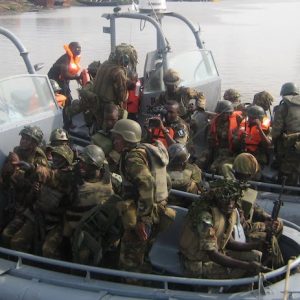
What Ships Can be arrested
It is not all ships properly defined that can be arrested, though most ships may be subject to arrest. Ships are not limited to the composite-shaped hulls and sea-going vessels that many are familiar with. Under Nigerian law, they include barges, drilling rigs, offshore industry mobile units and even wrecks.1
But if a claim arises in respect of a vessel under construction which has not been launched, it cannot be arrested under the law as it is not yet within the definition of a vessel. In addition, a government ship or property may not be arrested under an action in rem.2
The import of section 24(2)-(4) of the Admiralty Jurisdiction Act is that notwithstanding whether the claim qualifies as an admiralty action in rem, only ships which are not government ships as defined by Section 24(4) can be arrested and proceeded against in an action in rem. Further analysis of the said subsection (4) yields the following postulations:
- Ships owned or demised to agencies of government (like NIMASA or NNPC) are obviously exempt from entitlement to state immunity.
- State organs or officials may claim the immunity with regard to ships owned, demised or subdemised by them.
- There is no distinction as to the kind of operation or transaction – commercial or otherwise – to which the ship seeking immunity is deployed.
With regard to the reference to ships ‘demised’ to government or its agencies, it is submitted that the words “demised” and “sub-demised” used in Section 24 (4) AJA can be construed by applying the ejusdem generis canon of interpretation to mean ‘under the full control’ of the relevant state organ.
Thus, only a ship owned or operated by a government under a bare-boat charter may claim immunity from arrest. Ships owned by other entities but chartered by a state organ may not claim state immunity from arrest under section 24(2) of the AJA. The position relating to government owned ships which are chartered to private entities for private ends is however unclear in the light of the express provisions of Section 24(2) of the AJA.
It is noteworthy that the immunity from arrest granted under section 24 of the AJA has nothing to do with ships owned or controlled by a foreign government – as subsection (4) thereof specifically refers to Federal and State Governments as well as the Nigerian Navy. Whether such foreign government
1 Section 25, Admiralty Jurisdiction Act
2 Section 24(2)-(4) Admiralty Jurisdiction Act
ships qualify for immunity from arrest – or from the jurisdiction of Nigerian courts for that matter – depend on an entirely different set of rules of international law. In this regard, Article 10 of the United Nations Convention on Jurisdictional Immunities of States and their Property, 2004 provides expressly that State immunity cannot be invoked for commercial contracts.
The convention though not binding (on account of having not secured the required number of signatories) was nonetheless held in the UK Supreme Court case of Benkharbouche v Secretary of State for Foreign and Commonwealth Affairs (2017) UKSC 62, to be codified evidence of existing customary international law on the matter. Foreign government ships involved in purely commercial transactions will therefore in the appropriate circumstances be subject to the in rem admiralty jurisdiction of the Federal High Court of Nigeria. In Trendtex Trading v Central Bank of Nigeria (1977) 1 QB 529, Lord Denning MR held thus
“If the dispute brings into question, for instance, the legislative or international transactions of a foreign government, or the policy of its executive, the court should grant immunity if asked to do so, because it does not offend the dignity of a foreign sovereign to have the merits of such a dispute canvassed in the domestic courts of another country: but, if the dispute concerns, for instance, the commercial transactions of a foreign government (whether carried on by its own departments or agencies or by setting up separate legal entities), and it arises properly within the territorial jurisdiction of our courts, there is no ground for granting immunity”.
As already noted above, the asset or physical structure which can be the subject of ship arrest in law does not necessarily conform with popular appreciation of the term “ship”. Even where such an asset falls within the definition of what may be arrested, certain exemptions may or may not apply in the particular circumstances of each case. The need for prospective claimants and indeed ship owners to seek sound legal advice when faced with ship arrest situations is once again underscored.
For more information and consultation on this subject, contact Akabogu and Associates by email (info@akabogulaw.com) or call 2347043293271.
Next – Part Three: Arrest of Cargo on Board a Ship. Click here to subscribe to Nigeria Ship Arrest Series
